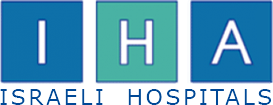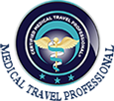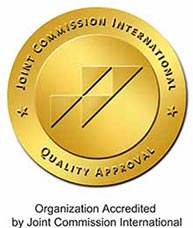
Coronary Bypass Surgery (CABG)
Coronary bypass surgery, also known as CABG, allows blood to flow around a portion of a partially or fully blocked artery in the heart. This surgical procedure improves circulation by diverting the blood to flow through a different pathway to reach your heart.

In a coronary bypass surgery, blood is diverted from the blocked artery by taking a healthy blood vessel from your chest, arm or leg and attaching it to another artery in your heart.
After the surgical procedure, patients experience a lessening of common symptoms associated with poor circulation to the heart, including shortness of breath and chest pain. Some patients see improved heart function and a reduction in the risk of fatal heart disease.
Why It’s Performed
Discuss with your doctor whether coronary bypass surgery, angioplasty, stenting or another procedure to open arteries is right for you.
You may be a good candidate for CABG if:
- Your left ventricle, or the heart’s primary pumping chamber, does not function properly and you have at least one diseased coronary artery.
- Your left main coronary artery, the artery that delivers most of your blood to the left ventricle, is critically blocked or narrowed.
- Your arteries that deliver blood to your heart have narrowed and your heart doesn’t have enough blood when at rest or during light exercise, causing chest pain. Though angioplasty or stenting can improve blood flow, some blockages require coronary bypass surgery.
- Your artery blockage is not appropriate for angioplasty, you’ve previously had an unsuccessful angioplasty, or you’ve had a stent replacement in the past but experience restenosis, the re-narrowing of your artery.
Some emergency situations, including a heart attack, may require a coronary bypass surgery if the patient is not responding to other treatments attempted by the doctor.
The underlying heart diseases that causes blockages is called coronary artery disease or atherosclerosis. It is important to note that coronary bypass surgery does not cure this disease.
Coronary bypass surgery should be a part of an overall treatment plan that includes lifestyle changes following surgery. Medications are typically prescribed after the procedure to lower the risk of blood clots, lower the cholesterol in your blood and improve heart function.
How It’s Performed
Coronary bypass surgery requires general anesthesia and typically lasts between three to six hours. The degree and location of your blockages will dictate the number of bypasses completed.
During the majority of coronary bypass surgeries, the surgeon preforms the procedure by diverting blood flow to a heart-lung machine. This is called an on-pump coronary bypass surgery.
The surgeon makes a long incision down the center of your chest that follows your breastbone. Your rib cage is then opened by the surgeon to expose the heart. Once the chest has been opened, the heart-lung machine takes over the circulation process and your heart is stopped temporarily.
A portion of a healthy blood vessel, frequently from the lower leg or the internal mammary artery of your chest wall, is taken by the surgeon and reattached below and above the blocked artery. This allows your blood to be diverted around the diseased artery and complete the bypass.
The surgeon may also choose one of the following surgical techniques to perform coronary bypass surgery:
- Beating-heart or off-pump surgery - During this procedure, advanced technology is able to stabilize the part of the heart where the surgeon is working. Because the heart is still moving throughout the surgery, it can be difficult and is not the right solution for everyone.
- Minimally invasive procedure - The surgeon performs the procedure through a smaller incision in the chest with the help of video imaging and robotics. This type of procedure may be referred to as a keyhole or port-access surgery.
Expected Results
Following coronary bypass surgery, many patients feel better and stay free of symptoms for 10-15 years. Even though blood flow is improved, the underlying coronary artery disease remains and is not cured by CABG. Your expected results and long-term prognosis will be improved by maintaining a healthy lifestyle and taking medications to help reduce cholesterol, reduce blood pressure, prevent blood clots and manage diabetes.
Leading department specialists

price comparison Israel/US
| Procedure | US Hospitals | Rambam hospital | Average Savings |
| Coronary bypass surgery (CABG) | $70,000 - $200,000 | $30,000 - $35,000 | 42% - 82% |
Heart bypass package
| Heart Bypass | Price $ |
|
The Package Includes: * Up to 7 days of hospitalization. * Cardiology operating room charges: operating room, recovery room, scrub & circulating nurse * Routine laboratory tests necessary for the procedure as ordered by the attending physician. * Radiology Studies: Chest X-ray, if required. * Cardiac investigation: EKG (as required) . * Medications: Routine medication used for procedure, during admission only. * Equipment costs: Medical Supplies, Routine Cardiology Supplies. * Doctor Fees: Cardiac Surgeon + Anesthesiologist + Assistant Surgeon (if necessary) |
33,240 - 37,000 |








